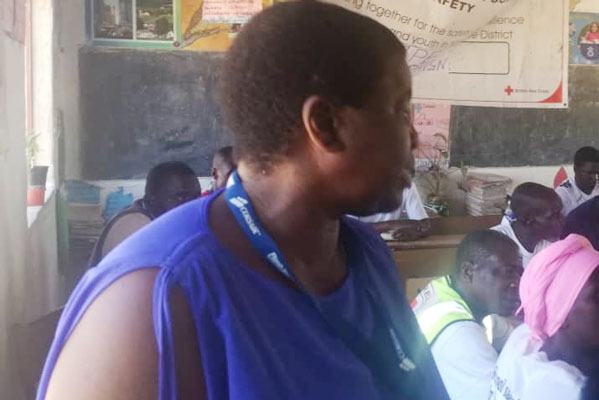
By Moses Mugugunyeki recently in Mangwe
Communities in Mangwe district, Matabeleland South province, have embraced projects meant to enhance disaster risk management capacities and community resilience, thanks to the Zimbabwe Red Cross Society (ZRCS), which is facilitating the programme in the area.
The project, which started late last year, is running under the title, Resilience through Disaster Response Management: Cash Preparedness and Comprehensive School Safety and is supported by the Finnish Red Cross, British Red Cross, the World Food Programme, and the European Union — Humanitarian Aid.
Matabeleland South province is a heterogeneous area with potentially destructive natural and socio-natural hazards being the order of the day.
Hailstorms, strong winds and floods are recurrent, particularly during the rainy season, creating high levels of risk.
This is exacerbated by the region’s susceptibility to such weather vagaries and dearth of spaces for social participation in development processes.
Lately, communities in the district have been battling a wildlife menace, mainly elephants crossing from Botswana.
During a recent visit by this publication to Mangwe district, ZRCS teams were seen engaging communities in building their knowledge-base and putting in place their own measures to stay safe through a programme running under the banner Public Awareness and Public Education (Pape).
- Chamisa under fire over US$120K donation
- Mavhunga puts DeMbare into Chibuku quarterfinals
- Pension funds bet on Cabora Bassa oilfields
- Councils defy govt fire tender directive
Keep Reading
ZRCS has identified 10 schools in Mangwe district where it is running a programme which seeks to open up spaces for social participation among community members.
“We aim to reduce the risks and the hazards that affect schools and communities here in Mangwe district,” said ZRCS provincial manager for Matabeleland South Siphiwethina Tshuma.
“We have chosen schools that are perennially affected by these hazards where physical structures like roofs are blown off and rehabilitating the facilities.
“We want to construct rails and structures like girl-friendly toilets and ensure that the disabled people are accommodated in schools.”
Tshuma said the integration of disaster risk management in the education sector and communities was crucial in order to increase awareness of the effects and causes of disasters
“The other issue is software education, which is what we are doing now. We have set up a disaster risk reduction [DRR] committee in all the 10 schools, which is chaired by the councillor who is deputised by the school head.
“There are key stakeholders like ward and child welfare representatives, traditional leaders and two teachers from each of the 10 schools to help be specific about those hazards that affect them.”
According to Tshuma, the project has received tremendous support from all departments in the district from education, public works, community and traditional leaders to villagers themselves. A teacher at Maninji Secondary School, Lungisani Tshabalala, who is a member of the DRR committee in ward 8, said the community had embraced the programme.
“We have noted great improvement in the way students and the community react to disasters since the inception of this programme late last year,” Tshabalala said.
“As a school, we have benefited a lot from the Pape for disaster reduction management being facilitated by the Red Cross here.”
Last Wednesday, members of the community, teachers and students from ward 8 went through Pape for disaster reduction management at Maninji primary and secondary schools.
“We are looking to come up with a strategy for a participatory public awareness campaign led by the communities themselves with the Red Cross only coming in as support,” said Tshuma.
She said the programme was likely to spread to other districts and provinces, resources permitting.
“This is a pilot project. If we implement it well and achieve all the objectives, there is so much room for people to continue to partner so that we expand to all the provinces in the country,” Tshuma added.











